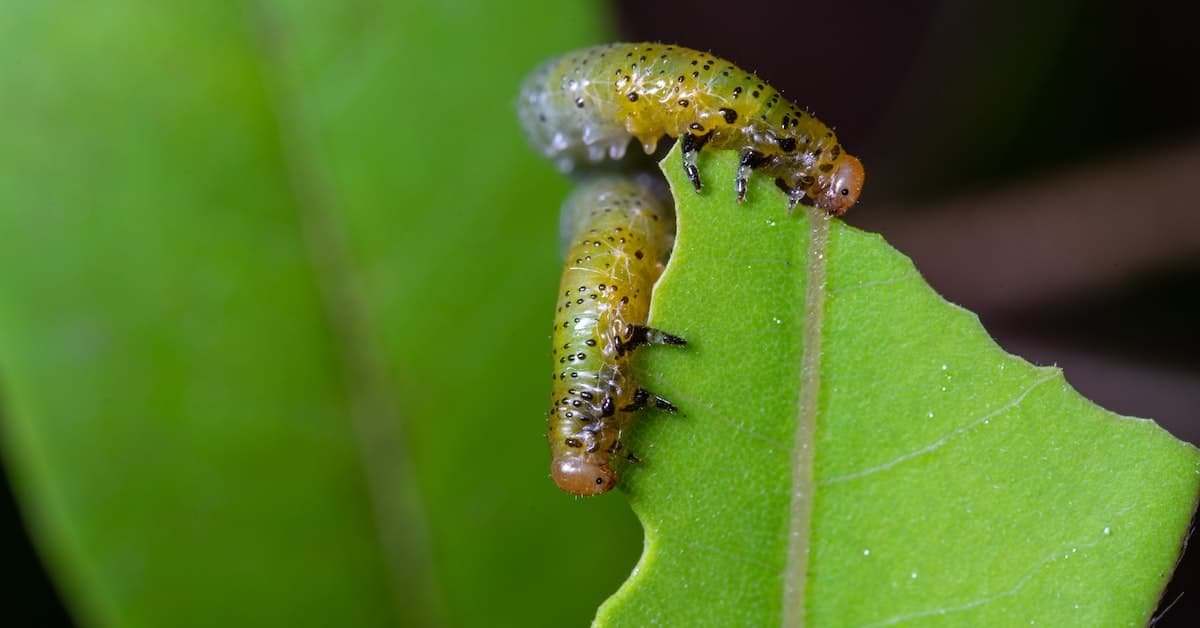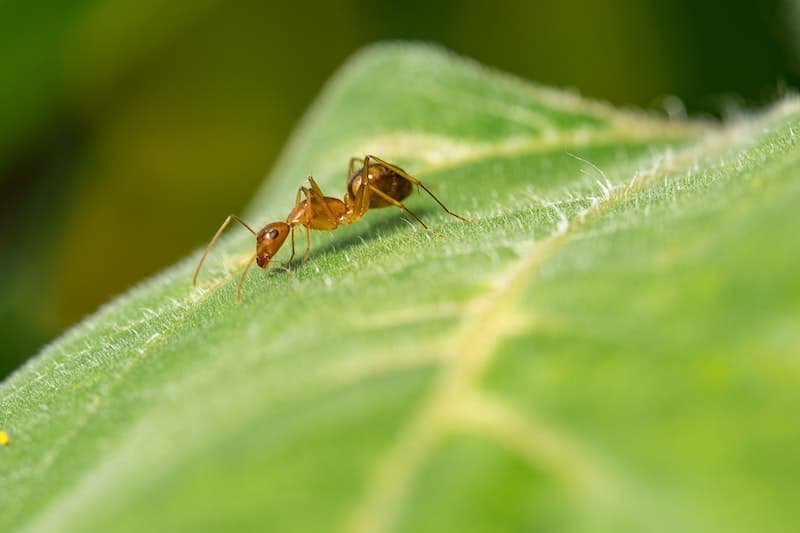
Gardening is an enjoyable pastime that can provide lots of benefits. From fresh produce to a beautiful outdoor space, it is a rewarding hobby.
Yet, common garden pests can turn this enjoyable hobby into a frustrating experience. These pests can damage and destroy plants, leading to reduced and even complete loss of crops.
Fortunately, there are many effective methods for controlling and preventing garden pests.
This article will cover some common garden pests. We will also provide tips and tricks for banishing them from your garden.
Short Summary
- Proper garden maintenance, crop rotation, and the introduction of beneficial insects help control garden pests.
- Sustainable methods of pest control are preferable to using harsh chemicals. DIY pest control solutions like soapy water sprays are effective in controlling garden pests.
- Control mosquitoes by ensuring proper drainage. Introduce mosquito-eating fish or frogs, and plant mosquito-repelling plants.
- Natural predators like lizards, birds, and spiders can help control grasshopper populations.
Common Garden Pests

Bugs are one of the most common garden pests that can cause damage to plants and crops.
Here is a list of common garden pests to help identify and control them:
Mosquitoes: A common outdoor pest that can suck blood and cause itching and swelling. While they do not damage plants, they can make outdoor time unbearable.
Ticks: Parasitic crawlers that feed on blood and can carry diseases. They are most active in summer but can be found from late spring to early fall.
Fleas: Tiny bugs that also feed on blood and can cause skin rashes. They are active year-round, especially indoors.
Ants: These can be helpful or harmful to the garden, depending on the species. Some ants farm aphids, which can cause leaf damage. Fire ants, harvester ants, and Allegheny mound ants are aggressive and can bite.
Control and Prevention
Maintaining proper vegetable garden hygiene and introducing beneficial insects can act as a shield against bugs.
Organic pest control and integrated pest management are two ways of preventing and controlling garden pests.
Organic pest control is the use of natural remedies like soap sprays, companion planting, and introducing predators to control pests.
Integrated pest management involves a combination of preventive measures and the use of safe pesticides only as a last resort.
Proper garden hygiene includes removing weeds, dead plants, and debris. These can provide shelter and breeding grounds for pests.
Crop rotation is an effective preventive measure that can reduce the risk of soil-borne pests and diseases.
Beneficial insects like ladybugs, lacewings, and parasitic wasps can help control pest populations. These bugs are harmless to other beneficial insects and pollinators.
By using sustainable and non-toxic methods of pest control, gardeners can protect their plants and the environment while promoting a healthy ecosystem.
Beneficial Insects
Beneficial insects can play a crucial role in controlling harmful garden pests. Crickets eat other garden pests such as caterpillars, and aphids.
But, it is important to note that in larger populations, crickets can cause damage to plants. It is best to encourage a balanced ecosystem in the garden.
Another way to control pests is by introducing natural predators for grasshoppers, such as lizards, birds, and spiders.
Overfertilization can attract aphids, but beneficial insects like ladybugs and lacewings can help control their populations.
Removing caterpillars by hand and encouraging creatures that snack on them can also help control their damage.
Incorporate these natural methods of pest control and it will create a healthier garden environment.
Specific Pest Control
A method for controlling mosquitoes is to introduce mosquito-eating fish or frogs into the garden ecosystem.
Mosquitoes lay their eggs in standing water, and fish and frogs can eat both the eggs and larvae. This will reduce the mosquito population.
Planting mosquito-repelling plants like citronella, lavender, and marigold can help keep mosquitoes away.
When it comes to tick prevention, maintain a healthy lawn and use tick-specific chemicals to help reduce the tick population in the garden.
Treating pets with flea and tick-repellent products can also help prevent ticks from attaching to them. This will prevent ticks from entering the garden.
For flea treatment options, Use nontoxic or chemical insecticides on lawns and shady areas.
It is important to check and treat pets for fleas. Remove any potential sources of standing water in the garden to prevent mosquito breeding.
| Positive Impact of Beneficial Insects | Negative Impact of Harsh Chemicals |
|---|---|
| Control pests naturally without harming beneficial insects | Can harm beneficial insects and pollinators |
| Creates a balanced ecosystem | Can lead to resistance in pests |
| Sustainable and eco-friendly | Can create toxic runoff and harm the environment |
FAQs:
What are some common signs that indicate a garden has a pest infestation?
Visible damage to plants, the presence of pests, and holes in leaves.
Are there any natural remedies for controlling garden pests that don’t involve harmful chemicals?
DIY pest repellents like soapy water and companion planting are alternatives to synthetic insecticides.
How can gardeners attract beneficial insects to their gardens to help control pest populations?
Gardeners can attract beneficial insects to their gardens by incorporating companion planting. Planting native plants and avoiding pesticides can also help attract beneficial insects.
What are some common mistakes that gardeners make when trying to control pests?
Relying solely on chemical insecticides and neglecting prevention measures.



